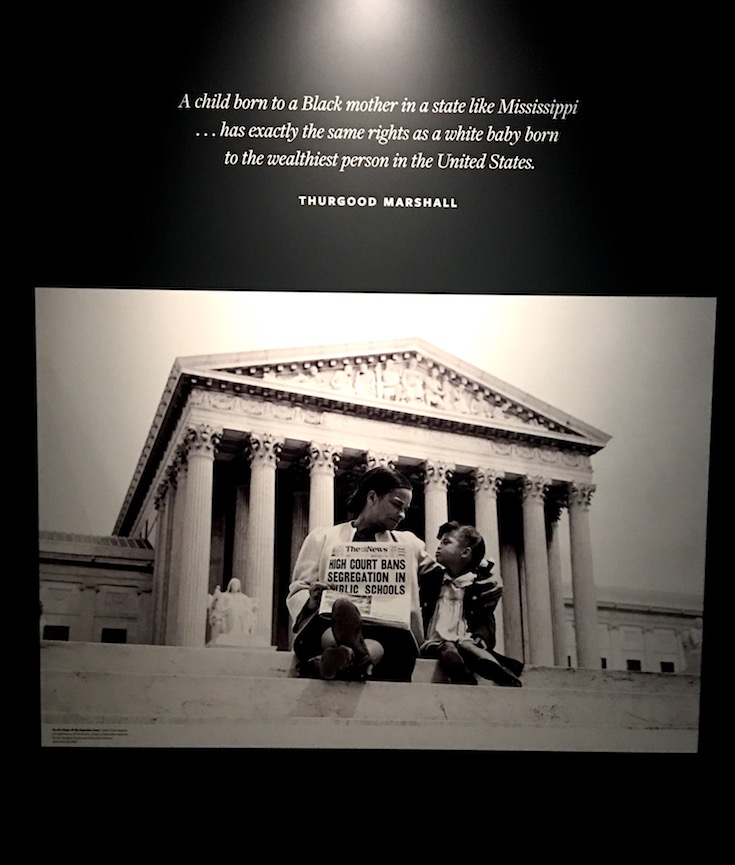Museum officials on Tuesday offered a sneak peek at the 400,000-square-foot museum, the 19th of the Smithsonian Institution, that’s next to the Washington Monument. President Obama is expected to cut the ribbon on the dramatic space, which features layers of galleries focused on slavery, segregation and the civil rights movement as well as music, entertainment, sports and politics.
[mc4wp_form id=”6042″]
Dozens of hard-hatted workers crammed the fourth-floor cultural galleries, where circular exhibition cases are being filled with objects related to food, education and sports.



 Photo | Chip Somodevilla, Getty Images
Photo | Chip Somodevilla, Getty Images















The National Museum of African American History and Culture (NMAAHC) is a Smithsonian Institution museum established in 2003. The museum’s building, designed by David Adjaye, is currently under construction on the National Mall in Washington, D.C.. Early efforts to establish a federally owned museum featuring African American history and culture can be traced to 1915, although the modern push for such an organization did not begin until the 1970s.
After years of little success, a much more serious legislative push began in 1988 that led to authorization of the museum in 2003. A site was selected in 2006, and a museum design approved in 2009. President Barack Obama helped break ground for the building on February 22, 2012. First concrete was poured in November 2012, and construction will be complete in April 2016. Smithsonian officials have announced that the museum will open on September 24, 2016.
The Smithsonian Institution listed the number of items in the museum collection in 2012 as either more than 18,000 pieces or more than 25,000 pieces. CBS News reported in May 2015 that the collection size had grown to 33,000 objects.
Items obtained by the museum initially were received, conserved, and stored at the Smithsonian Museum Support Center in Suitland, Maryland. Dozens of permanent curatorial staff and temporary contractors accessed the items, repaired them, and conserved them in a temperature- and humidity-controlled environment. Reneé Anderson, the NMAAHC’s head of collections, oversaw the effort. After artifacts were selected for display, graphics and labels for each item were manufactured. Display cases for each item were also purchases, and exhibiting mounts or specially designed cases handcrafted for particularly fragile, important, or unusually sized objects. Museum officials said all artifacts and displays will be moved into the new museum in the summer of 2016, along with the museum’s 175 full-time employees.


You must be logged in to post a comment.